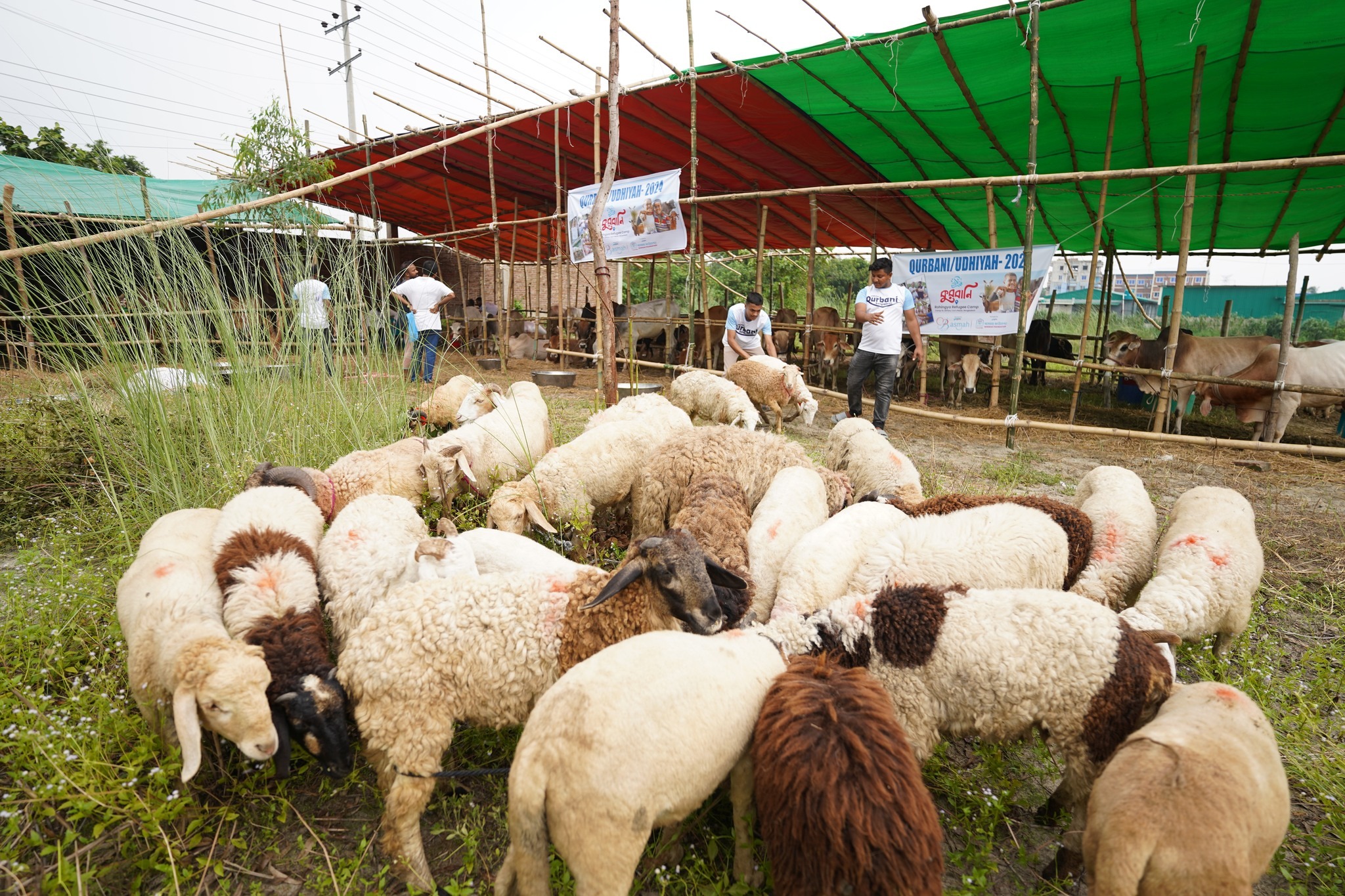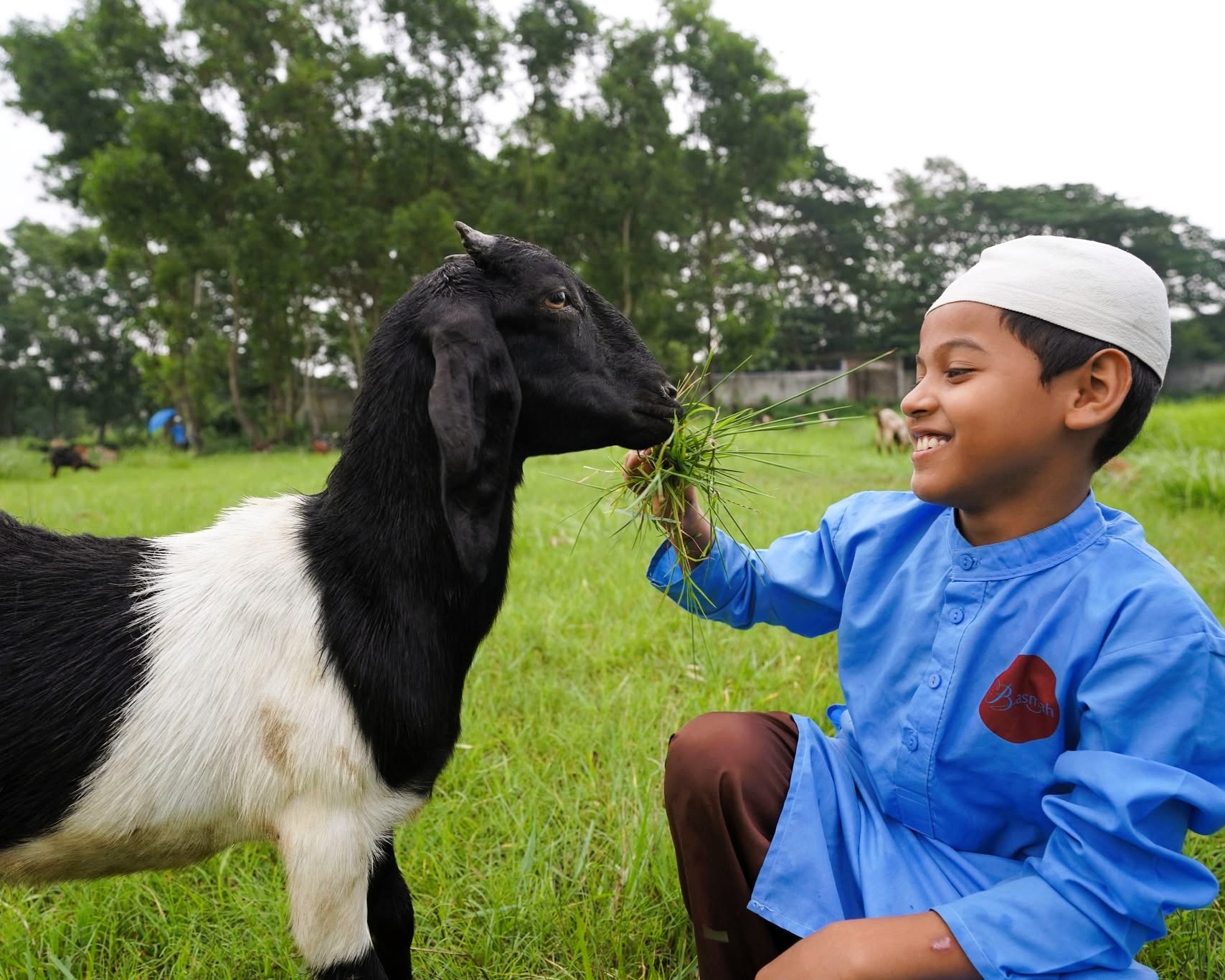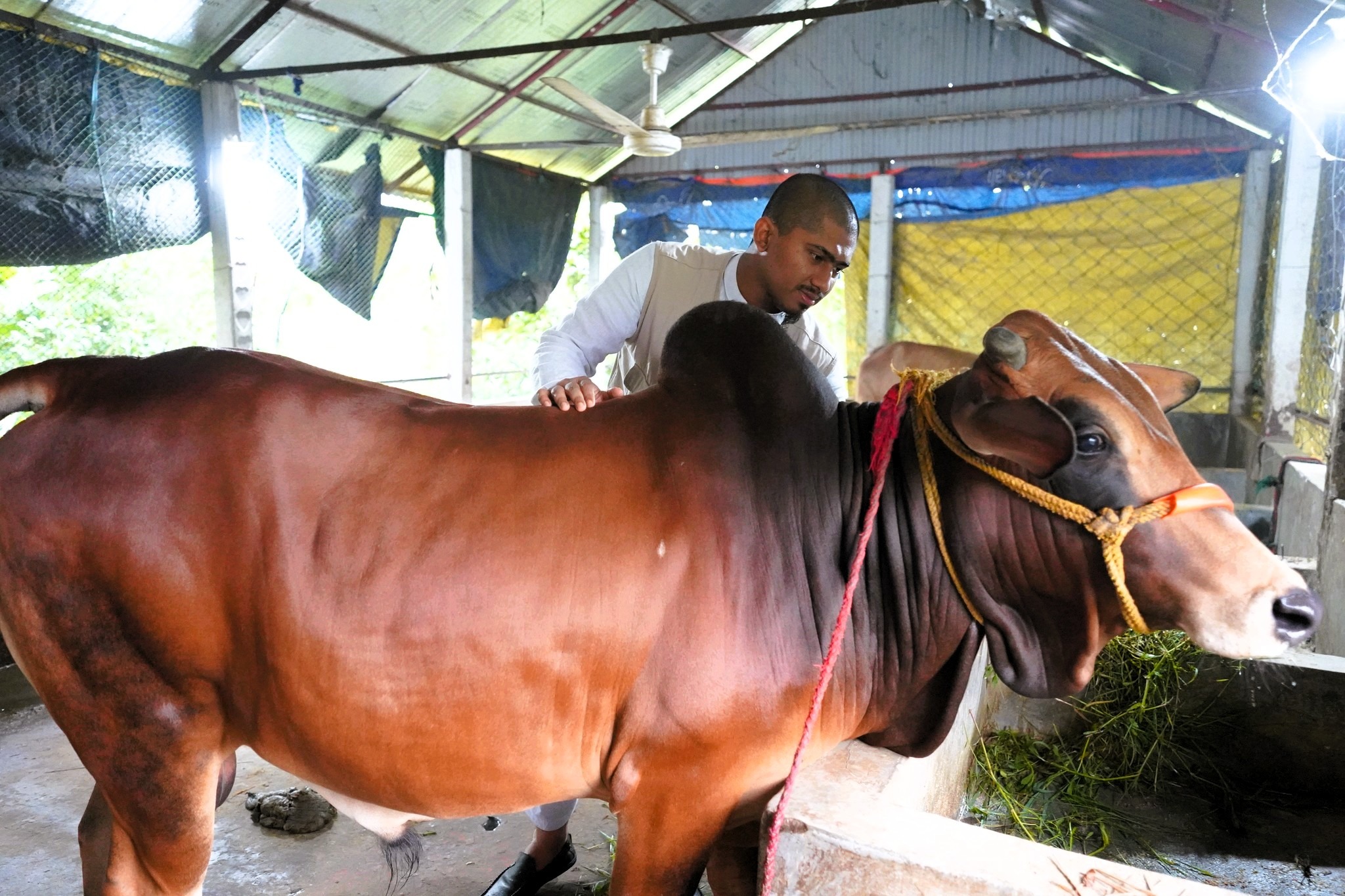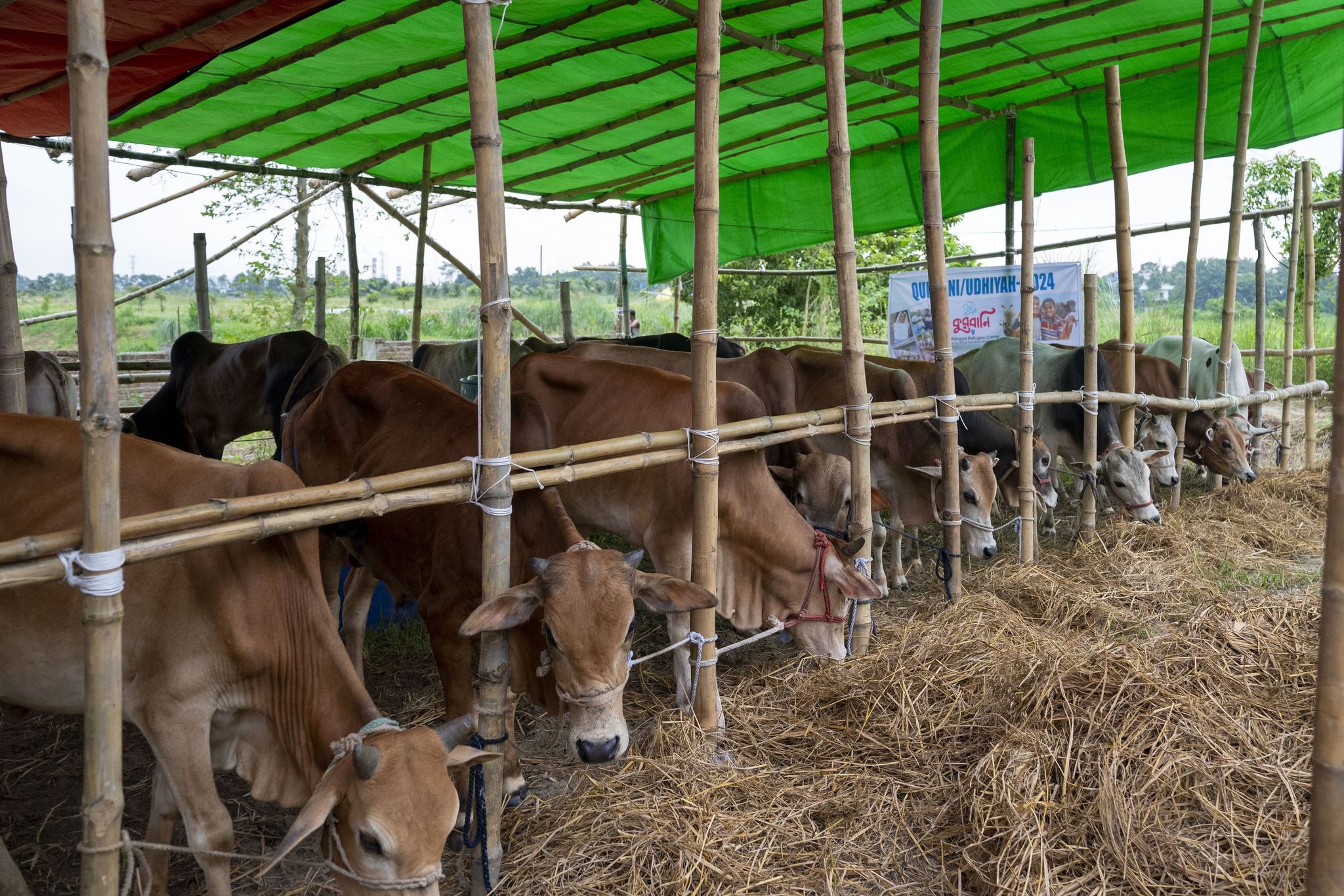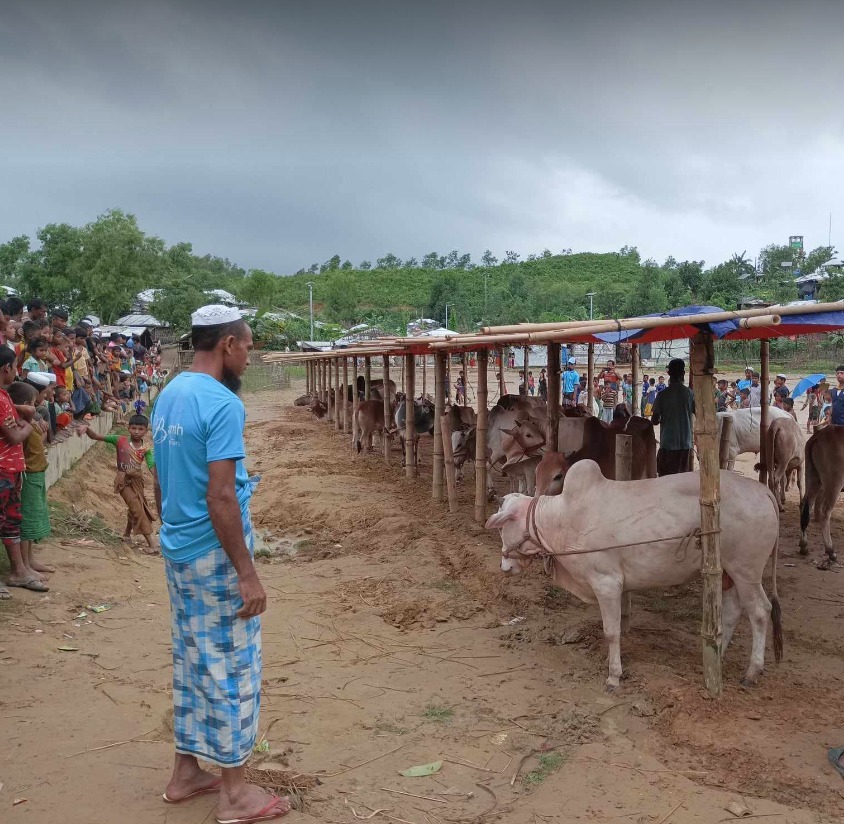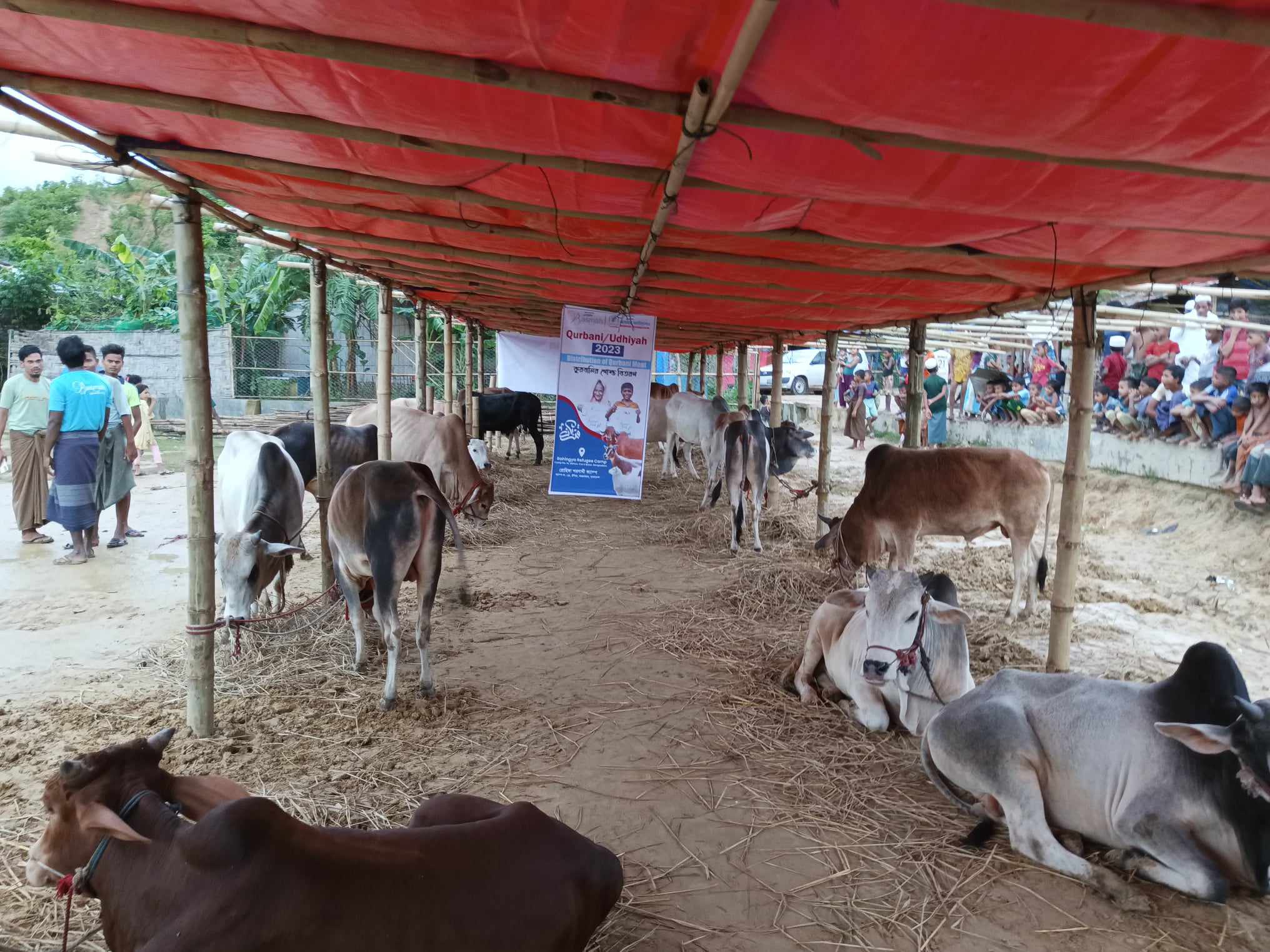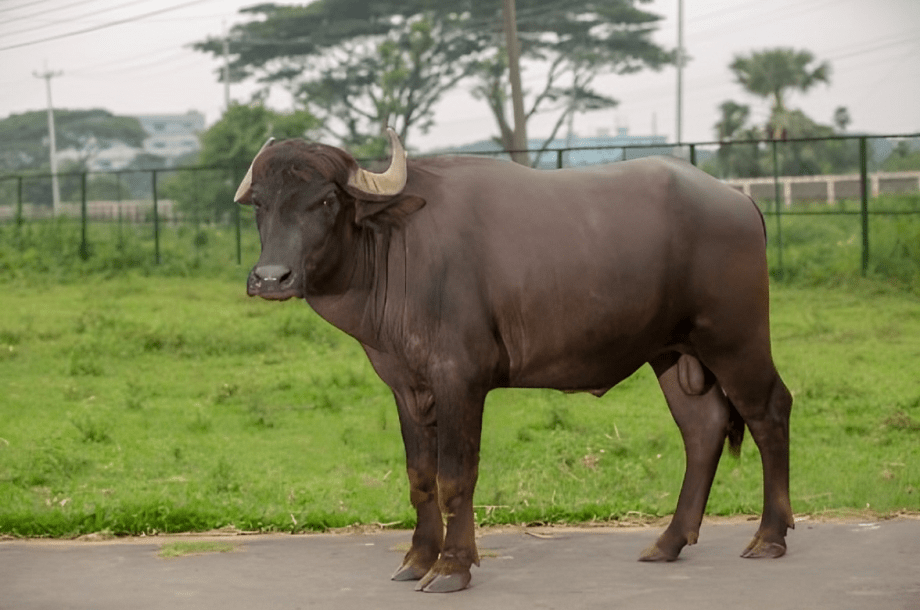The Great Story of Sacrifice: Qurbani in the Quran and It’s Story
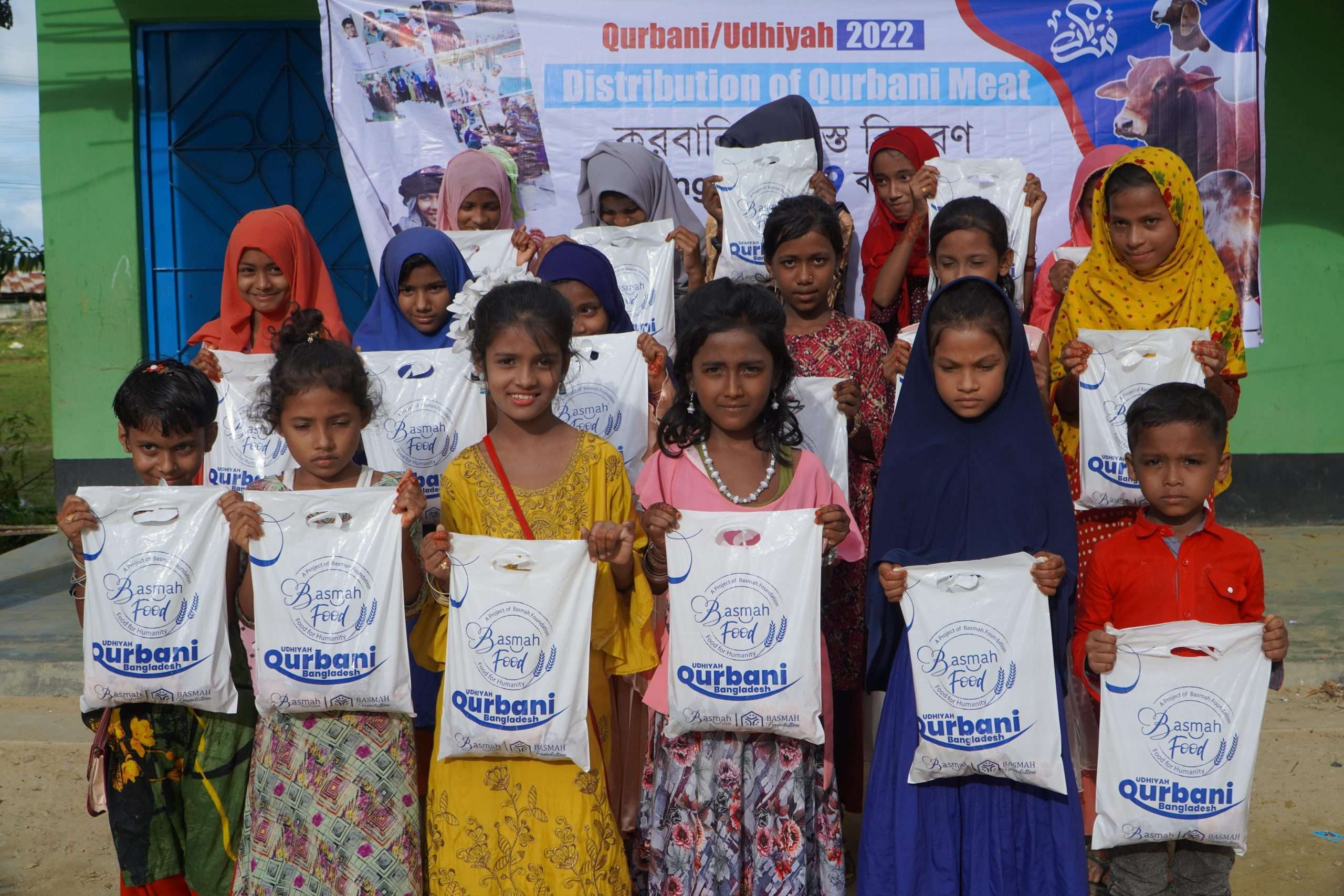
Imagine a special time of year for Muslims all around the world. It’s called Eid al-Adha, the Festival of Sacrifice. This year, it will likely begin around June 7th, 2025, right after we see the new moon. This festival is a time of joy, prayers, and remembering a very important act called Qurbani. It’s a tradition that goes back thousands of years, a story of amazing faith, love, and wanting to be close to God. Let’s explore this beautiful story together.
What Does Qurbani Really Mean?
Qurbani is an Arabic word, and you might hear people say it means ‘sacrifice’. That’s true, but it means so much more! It comes from another Arabic word, ‘qurb’, which means ‘nearness’ or ‘closeness’. So, Qurbani is about doing something special to feel closer to God, whom we call Allah.
What is this special act? Every year, during the days of Eid al-Adha (which last a few days), Muslims who can afford it offer an animal, like a sheep, goat, cow, or camel. They do this to remember a very brave and faithful man, Prophet Ibrahim (you might know him as Abraham). He lived a very long time ago and was asked by God to do something incredibly hard – to show he was willing to sacrifice his own son! We’ll talk more about his amazing story soon.
So, Qurbani isn’t just about giving meat. It’s a way to show God that we trust Him completely. It’s like saying, “Oh Allah, we want to be near You, and we are willing to give up things we love to show our devotion.” In our busy lives, we sometimes forget this. Qurbani helps us remember to put Allah first and try to please Him, just like Prophet Ibrahim did.
The most important part of Qurbani is why we do it. We need to have a sincere heart. We need to really mean it when we say we are doing this for God. It’s a chance to think about our connection with God and make it stronger.

Imam Siraj Wahhaj
Honorary advisor of BASMAH
The Very First Sacrifice: A Tale of Two Brothers
The story of sacrifice goes way back, almost to the beginning of people on Earth. The Qur’an, the holy book for Muslims, tells us about two sons of the very first prophet, Adam. Their names were Habil (like Abel) and Qabil (like Cain).
One day, Habil and Qabil had an argument. To help them solve it, their father, Adam, told them both to give an offering, a sacrifice, to God. He said that God would show whose offering He liked better, and that would show who was right.
Habil was a shepherd. He loved his sheep and wanted to give God his very best. So, he looked through his flock and picked the healthiest, strongest, and nicest ram. He offered it with a good and sincere heart.
Qabil, on the other hand, was a farmer. He grew crops. But when it was time to make his offering, he wasn’t as thoughtful as Habil. He didn’t pick his best crops. He offered some of the leftover, not-so-good produce. His heart wasn’t really in it.
What happened next? God showed that He accepted Habil’s offering. Maybe a light came down, or maybe the ram was lifted up – the story tells us God accepted it. But Qabil’s offering was left behind. God didn’t accept it.
Habil explained to his brother, “God only accepts from people who are mindful of Him and truly want to please Him.” We call this ‘taqwa’. It means having God in your heart and trying to do the right thing. Qabil didn’t have this ‘taqwa’ when he made his offering. But instead of learning a lesson, Qabil became very jealous. He was angry that his brother was favoured, and sadly, this jealousy made him do something terrible – he hurt and killed his brother.
This old, sad story teaches us a very important lesson for Qurbani. It tells us that what God looks at most is our heart. Are we doing it sincerely? Are we trying to give our best? It also teaches us to pick a good, healthy animal for our Qurbani and treat it well. And it reminds us that Qurbani isn’t just a chore we do once a year. It’s a special, spiritual act. It’s our chance to practice ‘taqwa’ and get closer to God.
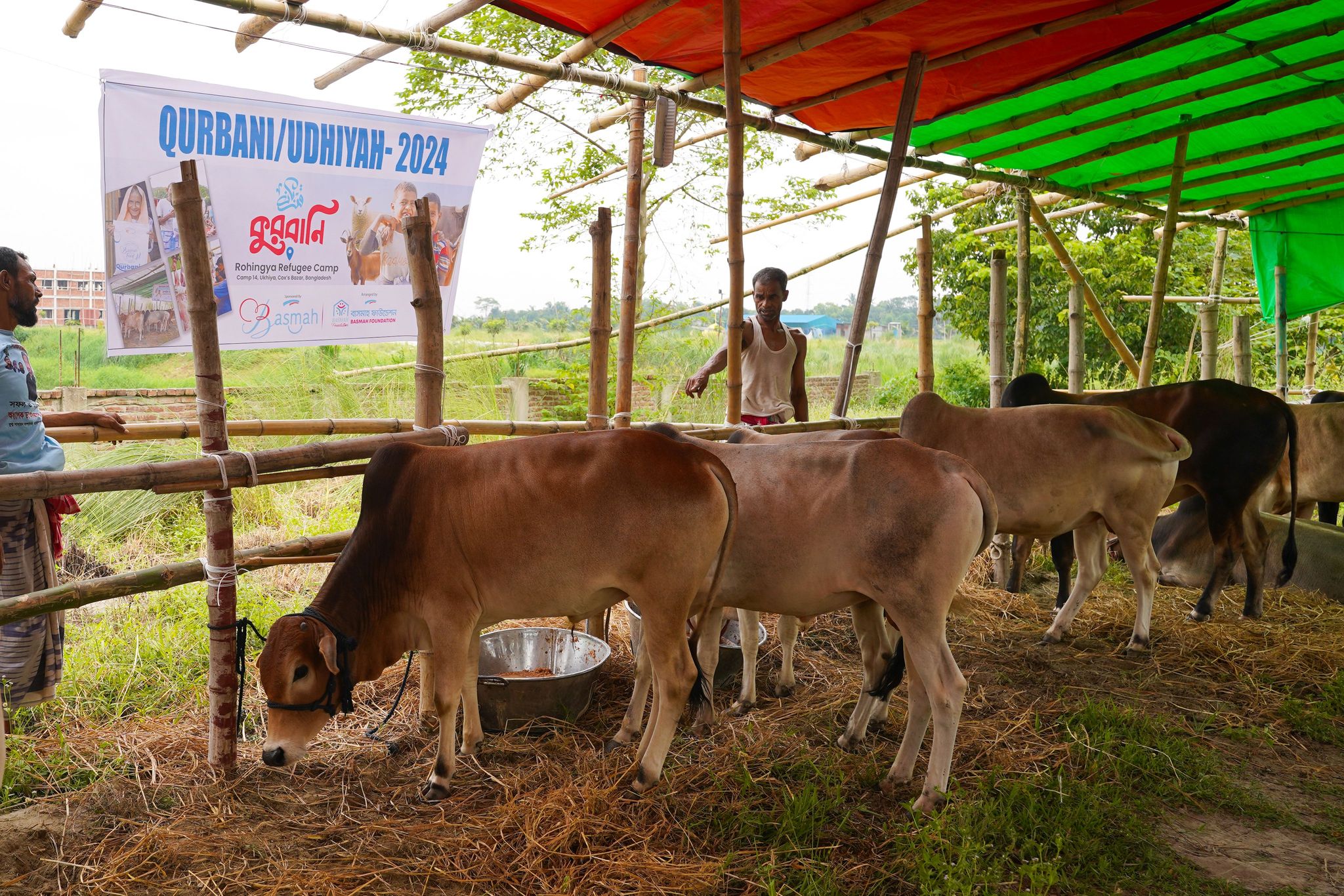
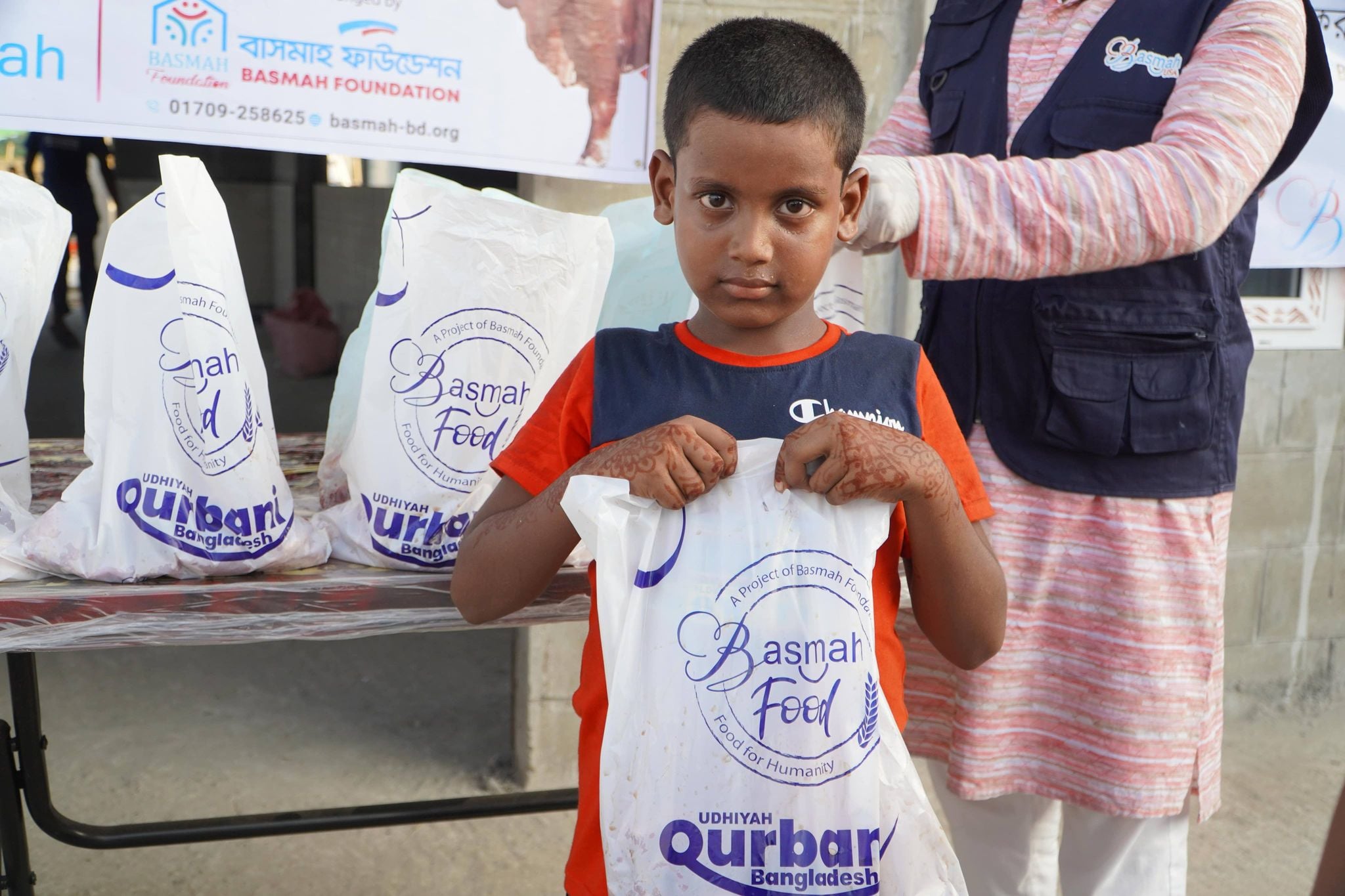
The Ultimate Test: Prophet Ibrahim's Incredible Faith
Now, let’s talk about the most famous story connected to Qurbani – the story of Prophet Ibrahim. He is a very special prophet, a friend of God. His life was full of challenges that made his faith stronger and stronger. After many years, God blessed him and his wife Hajar with a son, Ismail (you might know him as Ishmael). Ibrahim loved Ismail more than anything in the world.
As Ismail grew up and started walking and working with his father, Ibrahim started having a powerful dream. It came again and again. In this dream, God was telling him to do the hardest thing anyone could ever imagine: He was being asked to sacrifice his precious son, Ismail.
Can you imagine how hard that must have been? It’s almost too difficult to think about. But Ibrahim knew that dreams for prophets were messages from God. He trusted God completely. So, with a heavy heart, he decided to obey.
The amazing thing is that Ismail was just as faithful as his father. When Ibrahim told him about the dream and God’s command, Ismail didn’t argue or get scared. He knew his father was a prophet and that God’s commands must be followed. He said words that are written in the Qur’an:
‘He (Ismail) said, “O my father! Do as you are commanded. If Allah wills, you shall find me of the patient”’. (Qur’an, 37:102)
He trusted God and was ready to be patient and strong. His mother, Hajar, had also shown incredible trust years before when God asked Ibrahim to leave her and baby Ismail in a desert valley (which later became Makkah). Ismail had learned this trust from his parents.
So, Ibrahim and Ismail set off for the place where the sacrifice was to happen. Imagine their feelings during that walk. It must have been so difficult. But their faith was stronger than their fear.
On their way, someone else tried to stop them – Shaytan, or Satan. Shaytan is like a bad whisperer who tries to make people do wrong things. He didn’t want Ibrahim to obey God.
Shaytan appeared three times.
- First, he went to Ibrahim. He whispered, “Are you crazy? How can you sacrifice your own son? It’s a terrible mistake!” But Ibrahim knew it was a test from God. He knew Shaytan was trying to trick him. So, he picked up small pebbles and threw them at Shaytan, saying “Go away!”
- Then, Shaytan went to Hajar, Ismail’s mother. He tried to make her scared and angry. “Your husband is going to kill your son!” he whispered. But Hajar trusted God and her husband. She knew that if God commanded it, there must be a reason. She, too, threw pebbles at Shaytan.
- Finally, Shaytan went to young Ismail. He whispered, “Run away! Save yourself! Your father is going to hurt you!” But Ismail was brave. He trusted God and his father. He also threw pebbles at Shaytan.
This act of throwing pebbles is something millions of Muslims do every year when they go for Hajj in Makkah. It’s called the ‘Ramy’. It helps them remember how Ibrahim’s family fought against doubt and chose to obey God.
At last, they reached the place. Ibrahim prepared everything. He laid his son down. It was so hard for him that he gently turned Ismail’s face away so he wouldn’t have to look into his eyes. Both Ibrahim and Ismail prayed and remembered God. Ibrahim took the knife. His hand was raised. This was the moment – the biggest test of faith ever.
And right at that second, just as he was about to obey God’s command, a voice called out!
‘We called out to him, “O Ibrahim! You have already fulfilled the vision!” … That was truly a revealing test. And We ransomed him with a great sacrifice’. (Qur’an, 37:104-107)
God stopped him! Ibrahim had passed the test. God didn’t want Ismail to be hurt. He wanted to see if Ibrahim loved God so much that he was willing to give up even his dearest son. Ibrahim had shown his complete trust and love for God. His willingness was the real sacrifice.
Following the Prophet: Qurbani in the Time of Muhammad (saw)
The story of Qurbani continues with the last prophet, Prophet Muhammad (peace be upon him, or ‘saw’). He taught his followers, the Muslims, how to practice Qurbani in the way we do today. He showed us its importance and how it connects us to Prophet Ibrahim.
Prophet Muhammad (saw) felt a special link to this story. He once said something very interesting: ‘I am the son of two sacrificed people’. Who did he mean? He meant his ancestor, Ismail, who was almost sacrificed. And he meant his own father, Abdullah. There’s a story that the Prophet’s grandfather had made a promise that if he had ten sons, he would sacrifice one. When he had ten, the lot fell on Abdullah. But, just like Ismail, Abdullah was saved, and many camels were offered instead. So, the Prophet (saw) felt this deep connection to the idea of sacrifice and being saved by God.
When Prophet Muhammad (saw) did his own Qurbani, he often looked for rams that were white and had horns. Why? Because it reminded him of the special ram from Ibrahim’s story. He wanted to follow that tradition closely.
But perhaps the most wonderful thing Prophet Muhammad (saw) taught us about Qurbani was about sharing and caring. He didn’t just offer one Qurbani for himself and his family. He always offered a second Qurbani. Who was this second one for? It was for people in his community, his Ummah, who were too poor to offer their own Qurbani.
‘The Prophet (saw) sacrificed for the one who could not sacrifice from his ummah…’ (Tabarani and Ahmad)
He did this to show kindness and to make sure everyone could feel the joy and blessings of Eid. His friends and companions saw this and did the same. One of them, Anas bin Malik, said, ‘The Prophet (saw) used to sacrifice two rams, and I also sacrifice two rams’. (Bukhari)
This is a beautiful tradition – the ‘Prophetic Qurbani’. It’s something we can all try to do if we can. When you give an extra Qurbani, you get double rewards: one for your Qurbani, and another for helping someone else and following the Prophet’s example. And think about how happy it makes people! In many parts of the world, families rarely get to eat meat because it’s too expensive. When they receive Qurbani meat, especially from an extra donation, it’s a huge celebration. It shows them that Muslims around the world care about them. So, the Prophetic Qurbani makes our worship even more meaningful by helping others.
Following the Prophet: Qurbani in the Time of Muhammad (saw)
Qurbani Today: A Story We All Live
So, from the first offering by Habil, to the incredible test of Ibrahim, and the kind example of Prophet Muhammad (saw), the story of Qurbani comes right down to us today. Every year, when Muslims celebrate Eid al-Adha and offer Qurbani, we are joining this amazing, long story. We are not just following an old rule; we are living our faith.
Qurbani connects us all – millions of Muslims in every corner of the world – in one big act of worship. It helps us remember:
- To Be Mindful (Taqwa): Like Habil, we should try to do our best for God, with a clean heart.
- To Trust and Obey (Submission): Like Ibrahim, we should trust God’s plan, even when it’s hard, and show we are willing to put Him first.
- To Be Patient (Sabr): Like Ismail, we should be strong and patient, trusting that God knows best.
- To Be Kind and Share (Compassion): Like Prophet Muhammad (saw), we should think about others and share our blessings, especially with those who have less.
- To Be Thankful (Shukr): Qurbani is also a way to say “Thank You” to God for all the good things He has given us.
When we do Qurbani, we should remember to treat the animals kindly, following the proper Islamic way. We share the meat – some for our family, some for friends and neighbours, and a big part for people who are poor or hungry. It’s a time for coming together, sharing food, and strengthening our community.
A Beautiful End to a Beautiful Story
The story of Qurbani is deep and full of lessons. It’s a story about love for God that is stronger than anything else. It’s a story about trusting Him completely. It’s a story about family, faith, and fighting off doubts. And it’s a story about caring for others.
This Eid al-Adha, when you hear about Qurbani, or maybe even participate in it, remember these amazing stories. Think about how you can get closer to God. Think about what you can do to show your trust and thankfulness. Think about how you can share your joy and blessings with others. Let’s make our Qurbani a truly special act, one that comes from the heart and brings us all nearer to God and to each other.

